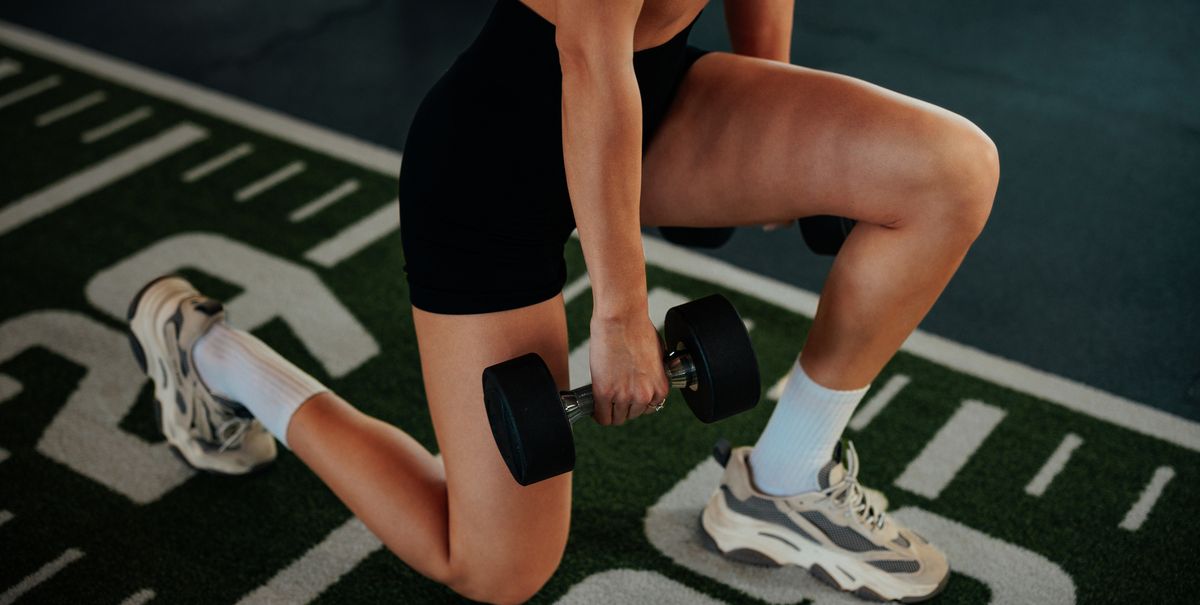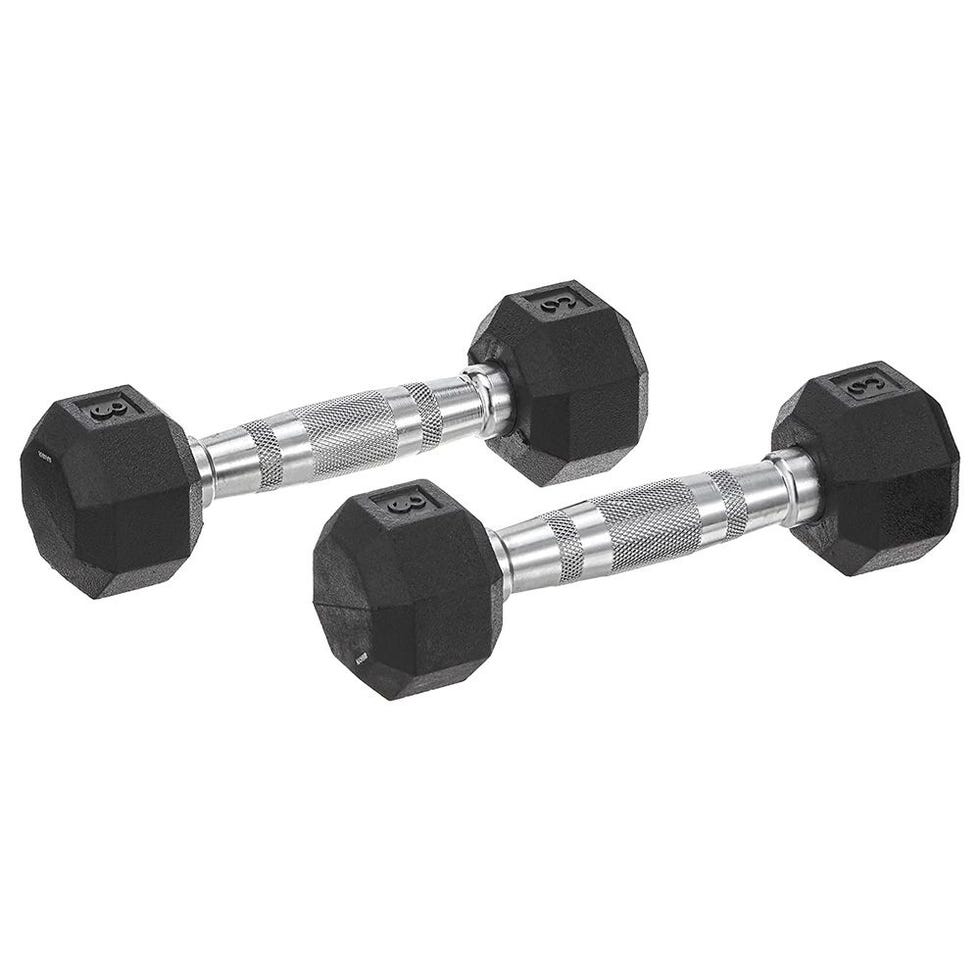Women’s Health may earn commission from the links on this page, but we only feature products we believe in. Why Trust Us?
Dimensions//Getty Images1Romanian Deadlift

How to:
Stand with feet hip-width apart and hold a pair of dumbbells in front of your thighs.Keeping a micro bend in your knees and core engaged, hinge at the hips to lower the weights down the front of your legs. Squeeze your shoulder blades together to keep your back flat, and engage your core throughout.Lower only as far as you can without letting your spine round, keeping the weights close to your shins.Pause at the bottom, then squeeze your glutes and drive through the heels to return to standing. That’s 1 rep.
Why it’s effective: “Deadlifts are beneficial for so many reasons,” Earnest says. “They help you build strength in key muscles like the hamstrings, glutes, and core, improve hip stability and mobility, enhance grip strength, and give your body more definition.”
2Front Rack Squat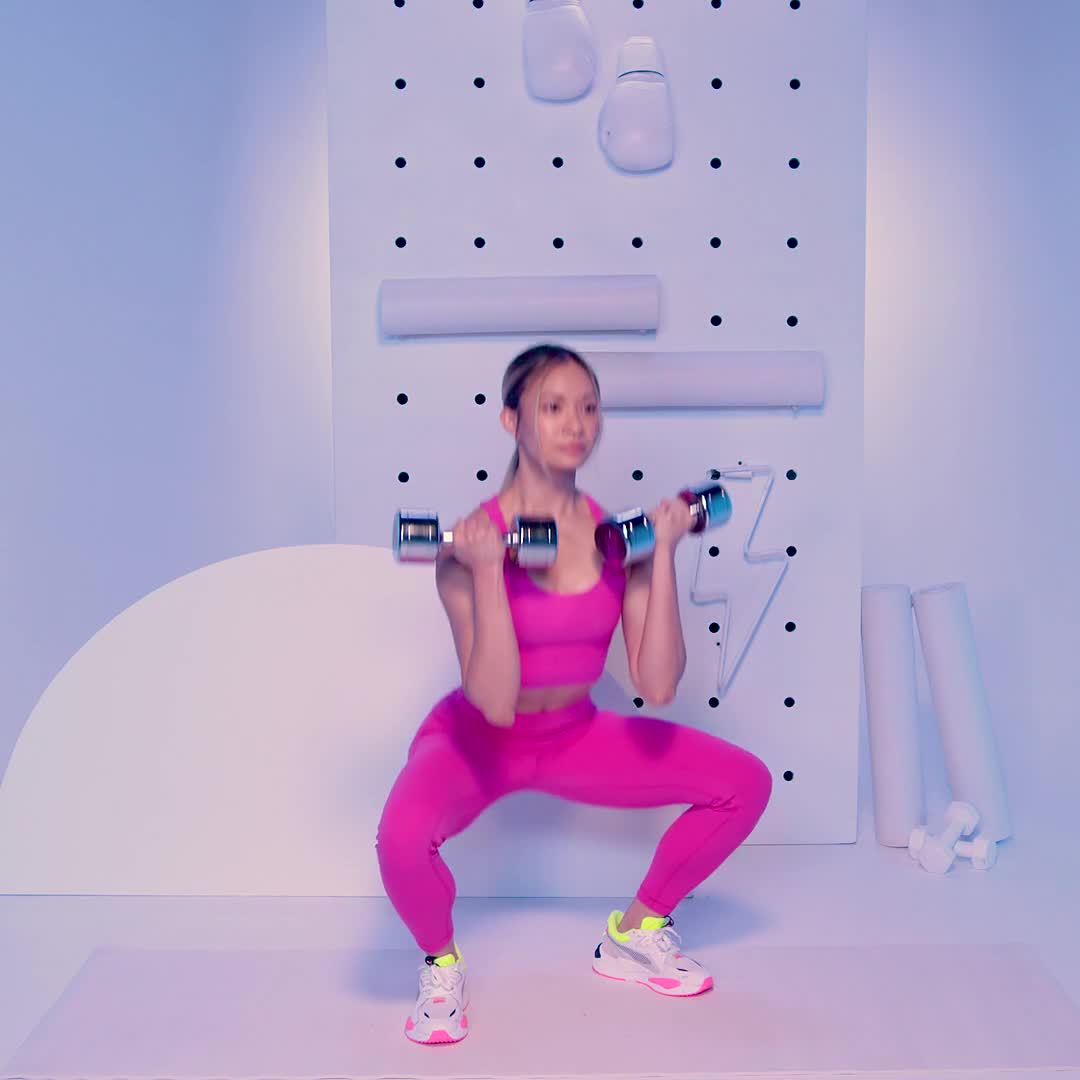
How to:
Standing with feet shoulder-width apart, hold a dumbbell in each hand. Rest the weights on the meaty part of the shoulders, holding your elbows high. Squeeze the shoulder blades together. Take a deep breath and draw your belly button in toward your spine to engage your core—if you lose core engagement, you’ll have a hard time maintaining your posture with the load on your shoulders. Sink your hips down and back, bending at the knee until your thighs are about parallel to the floor, or as far as your mobility allows. Drive up through your feet to stand back up. That’s 1 rep.
Why it’s effective: There are tooons of benefits to squats, including “strengthening your legs, improving core strength, your posture, mobility, and bone density,” Earnest says. They can even help improve your running by improving quad strength and core stability—which are both important in running form and reducing injury risk.
Advertisement – Continue Reading Below
3Alternating Reverse Lunges 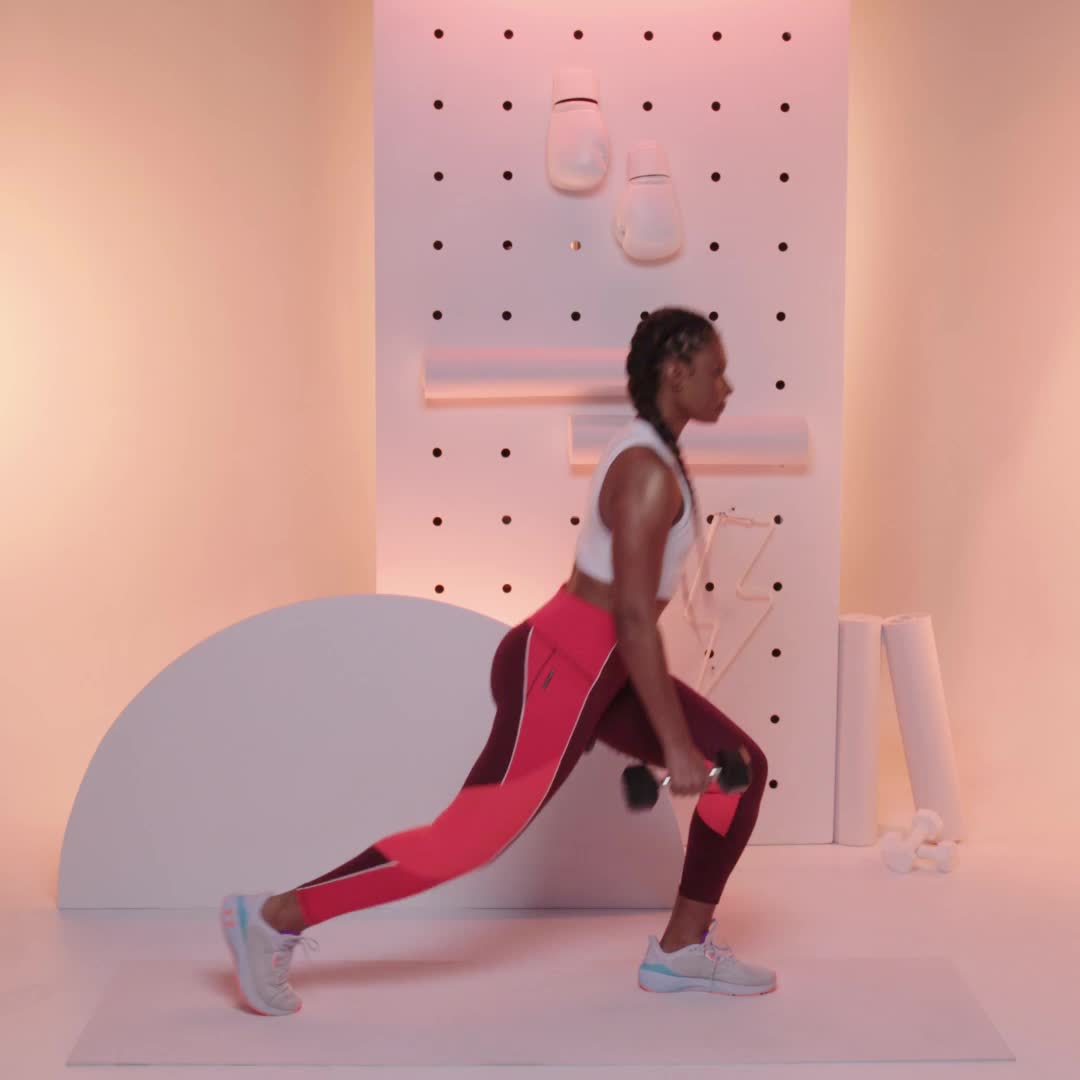
How to:
Stand holding dumbbells by your sides. Step left foot back and slightly out—think about keeping feet on railroad tracks, not a balance beam. Drop the left knee until it comes down to about 90 degrees, just barely touching the floor.Press through the right heel to return to standing, keeping head and chest up the whole time.Repeat on the opposite side. That’s 1 rep.
Why it’s effective: Reverse lunges are beneficial because “they put less stress on your joints [than forward lunges do], and give you a bit more stability in your front leg as you drive through it,” Earnest explains—ideal for those trying to improve their balance and knee control. “If you are looking to improve your hip mobility, this is a great way to increase your hips’ range of motion.”
LEVEL UP THE REST OF YOUR TRAINING WITH OUR STRENGTH TRANSFORMATION CHALLENGE.
4Single-Leg Deadlift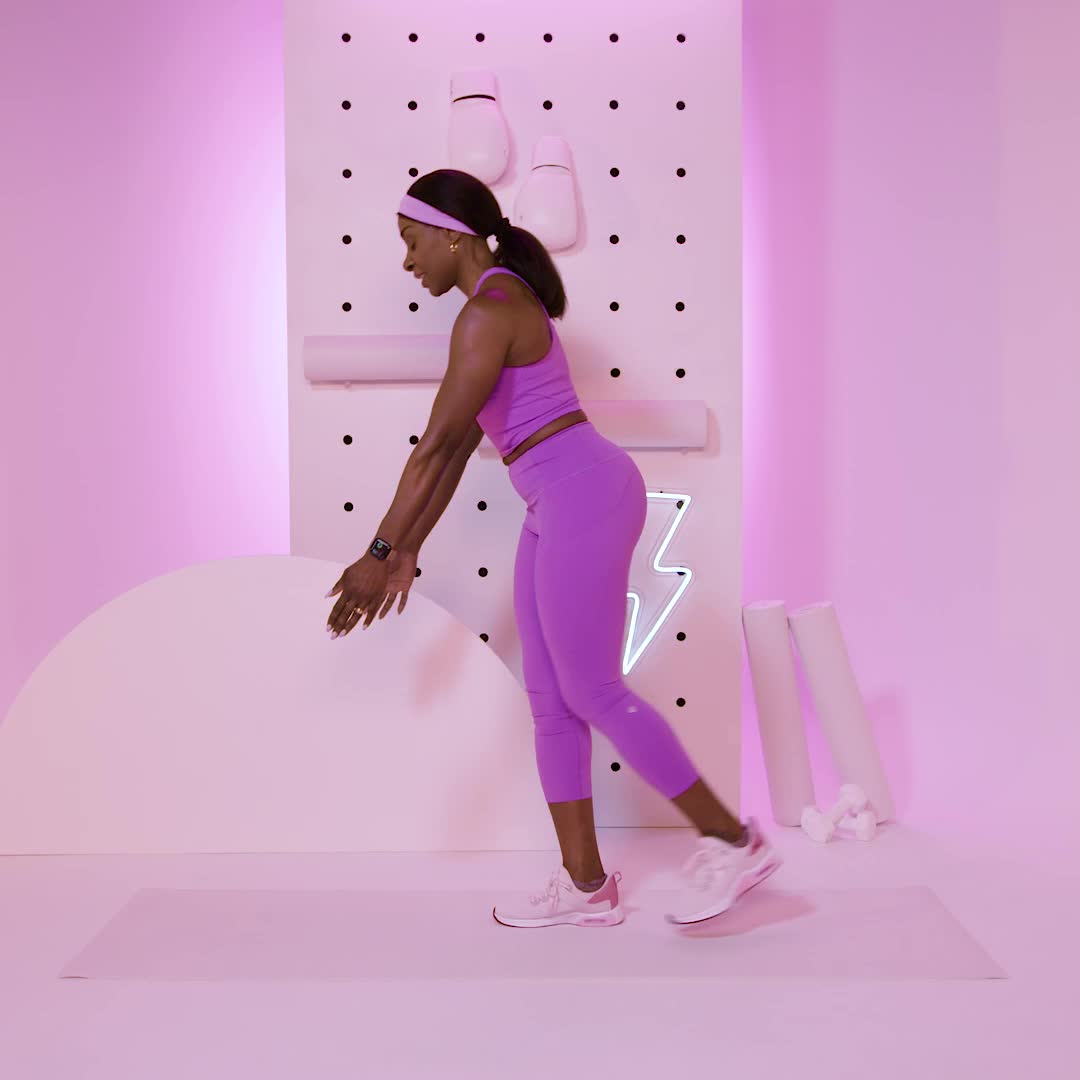
How to:
Stand with a dumbbell in each hand. Before moving, squeeze your shoulder blades together and engage your core by drawing your belly button back toward your spine. Balancing on the right leg, hinge forward to lower your torso toward the floor. Keep shoulder blades and glutes tight to keep your shoulders and hips square to the ground. Lower until you feel a good stretch through your hamstring. Keep your left foot up off the floor, but don’t feel like you have to perfectly straighten your leg behind you. Squeeze your glutes to return to standing. Repeat on the opposite side. That’s 1 rep.
Why it’s effective: Unilateral movements are vital to fixing strength discrepancies and improve stability and balance by challenging the tiny stabilizer muscles to work. This promotes strong joints and decreases the risk of injury.
Advertisement – Continue Reading Below
5Isometric Calf Raise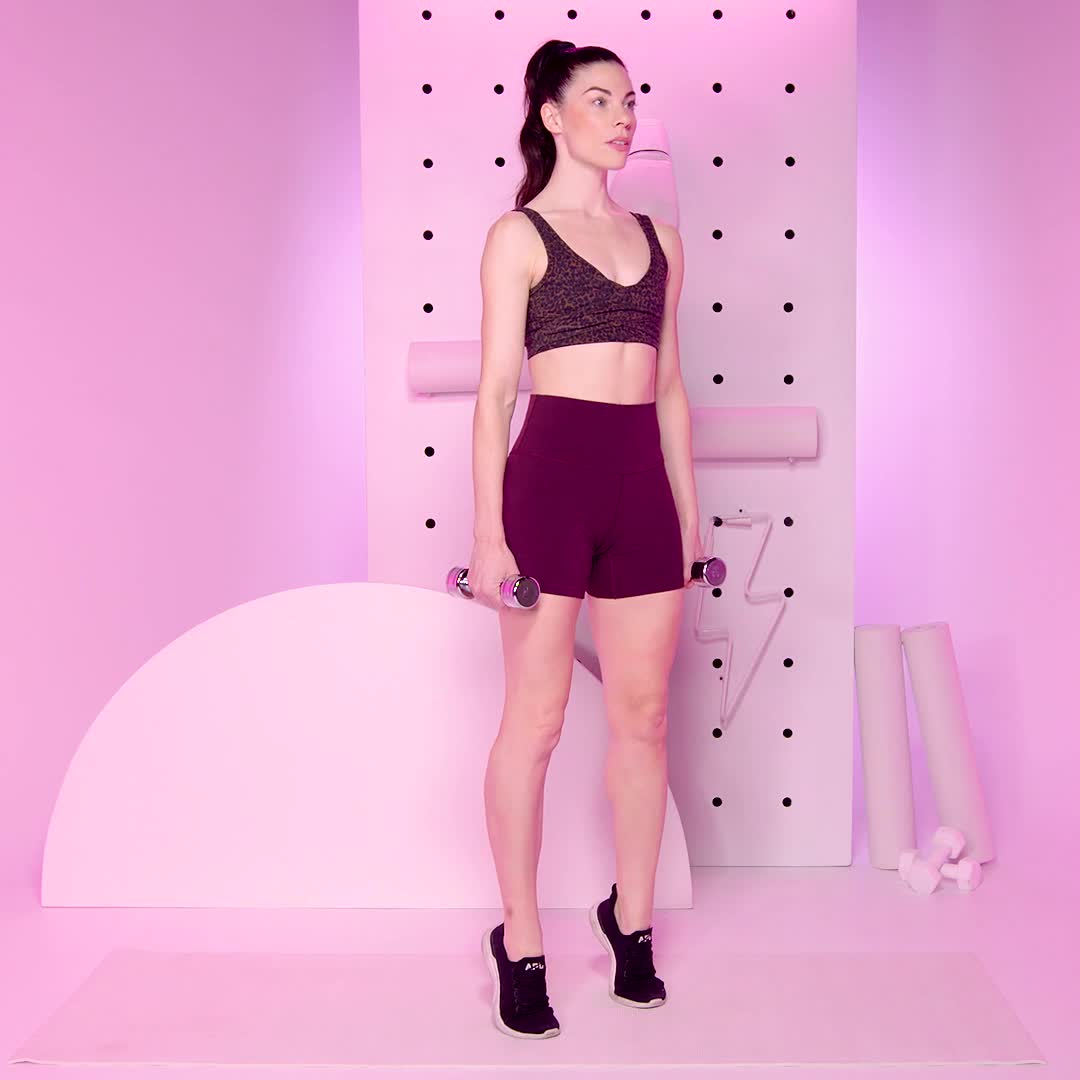
How to:
Hold dumbbells by your sides and stand with feet shoulder-width apart. For best results, take off your shoes—some stiffer shoes won’t allow for full range of motion. Keeping the rest of your body still, push through the toes to pop onto the balls of your feet. Hold for up to 30 seconds. That’s 1 set.
Why it’s effective: “Isometric calf raises strengthen the larger, outermost muscle that is in charge of the size and shape of your calves,” Earnest says. Strength in this muscle helps with efficient running and preventing injuries, she continues.

The Best Dumbbells For These Workouts
Advertisement – Continue Reading Below
Best Overall
Best Adjustable
LifePro Adjustable Dumbbells Set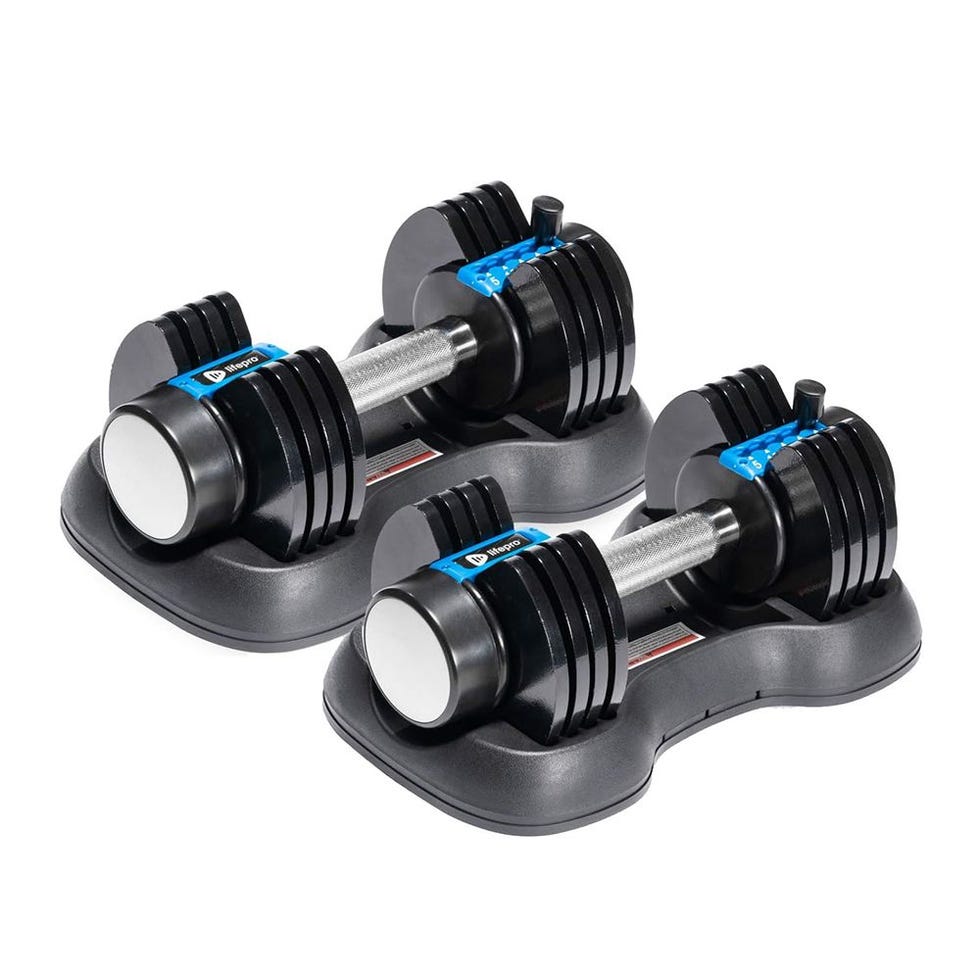
Advertisement – Continue Reading Below
Best For Beginners
BalanceFrom Neoprene Coated Dumbbell Set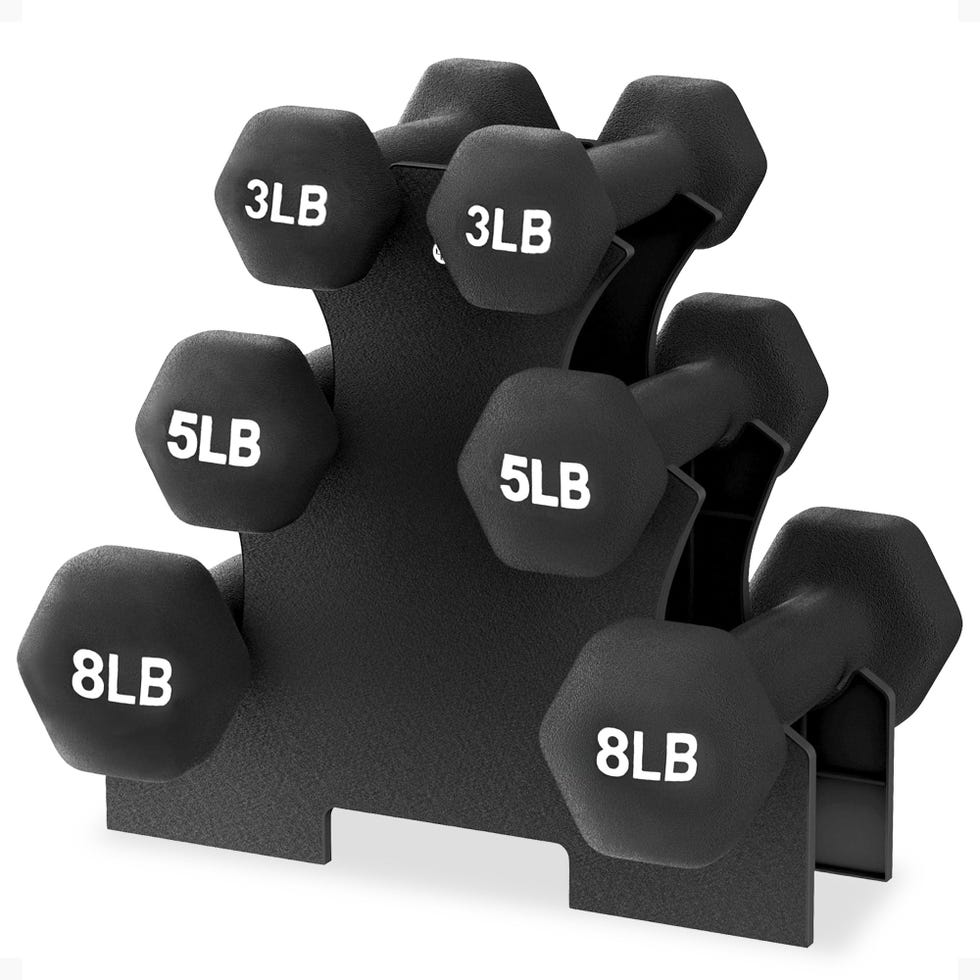
Cori Ritchey, C.S.C.S., is an Associate Health & Fitness Editor at Men’s Health, a certified strength and condition coach, and group fitness instructor. She reports on topics regarding health, nutrition, mental health, fitness, sex, and relationships. You can find more of her work in HealthCentral, Livestrong, Self, and others.
Watch Next
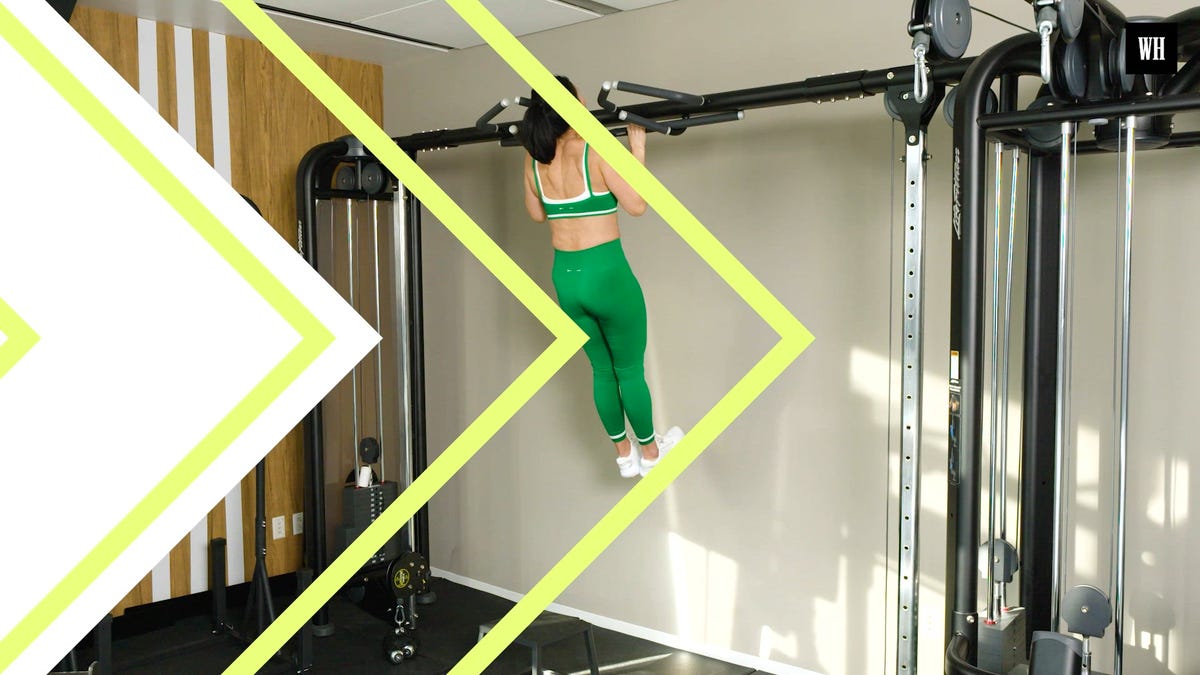
Advertisement – Continue Reading Below
Advertisement – Continue Reading Below
Advertisement – Continue Reading Below

